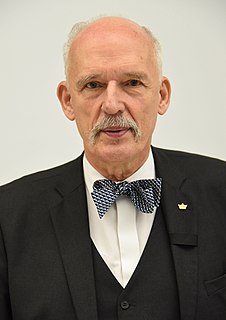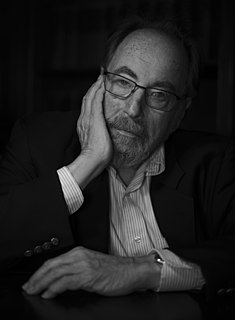A Quote by Janusz Korwin-Mikke
When in organism there are cancer cells, they have to be removed, not helped because they're "so young" and "so creative".
Related Quotes
You've got to get away from the idea cancer is a disease to be cured. It's not a disease really. The cancer cell is your own body, your own cells, just misbehaving and going a bit wrong, and you don't have to cure cancer. You don't have to get rid of all those cells. Most people have cancer cells swirling around inside them all the time and mostly they don't do any harm, so what we want to do is prevent the cancer from gaining control. We just want to keep it in check for long enough that people die of something else.
If you inhale a millionth of a gram of plutonium, the surrounding cells receive a very, very high dose. Most die within that area, because it's an alpha emitter. The cells on the periphery remain viable. They mutate, and the regulatory genes are damaged. Years later, that person develops cancer. Now, that's true for radioactive iodine, that goes to the thyroid; cesium-137, that goes to the brain and muscles; strontium-90 goes to bone, causing bone cancer and leukemia.
Single cells analyze thousands of stimuli from the microenvironment they inhabit. The more awareness an organism has of its environment, the better its chances for survival. When cells band together they increase their awareness exponentially. Division of labor among the cells in the community offers an additional survival advantage. The efficiency it enables more cells to live on less. Evolution is based on an instructive, cooperative interaction among organisms and their environment enables life forms to survive and evolve in a dynamic world.
Cancer vaccines are in the future. And they could be very effective. Checkpoint blockade, which is acting your immune system to recognize those cancer cells and kill them is another very promising approach and there have been some checkpoint blockade drugs out in the market now that will release the brake on T lymphocytes, the T lymphocyte is your major killer of tumor cells.
































